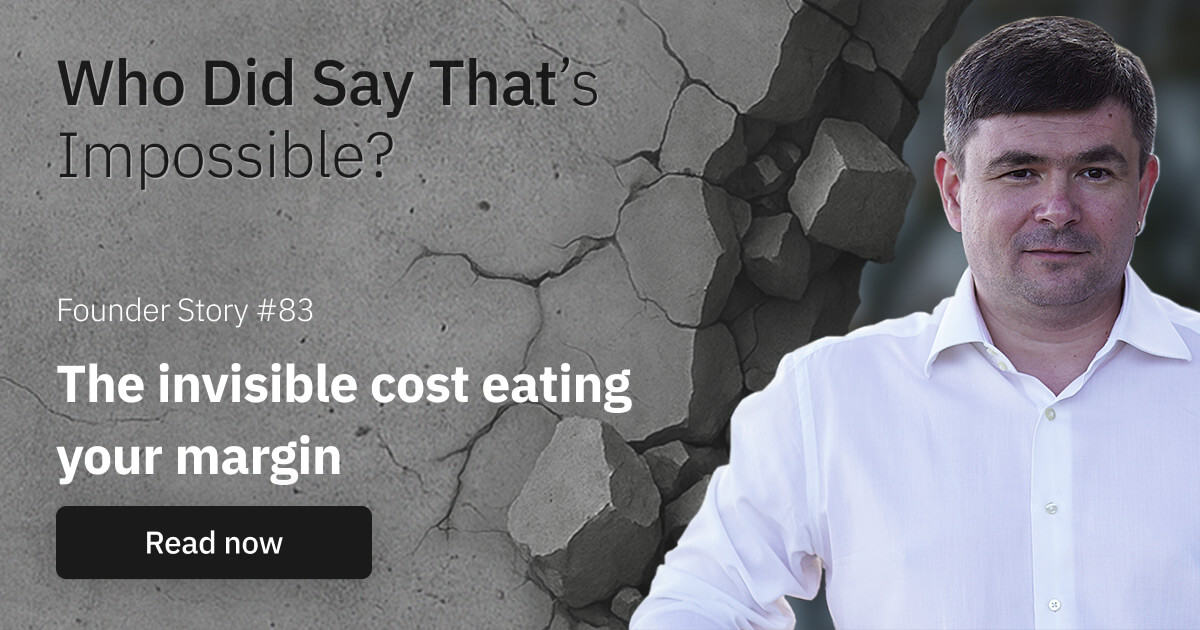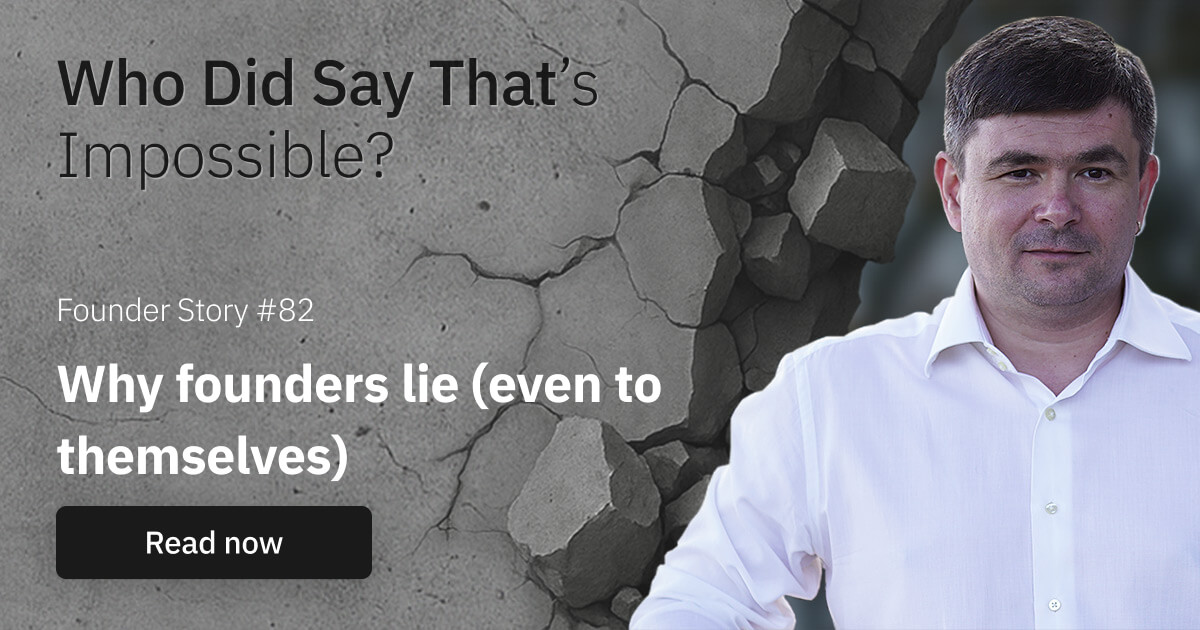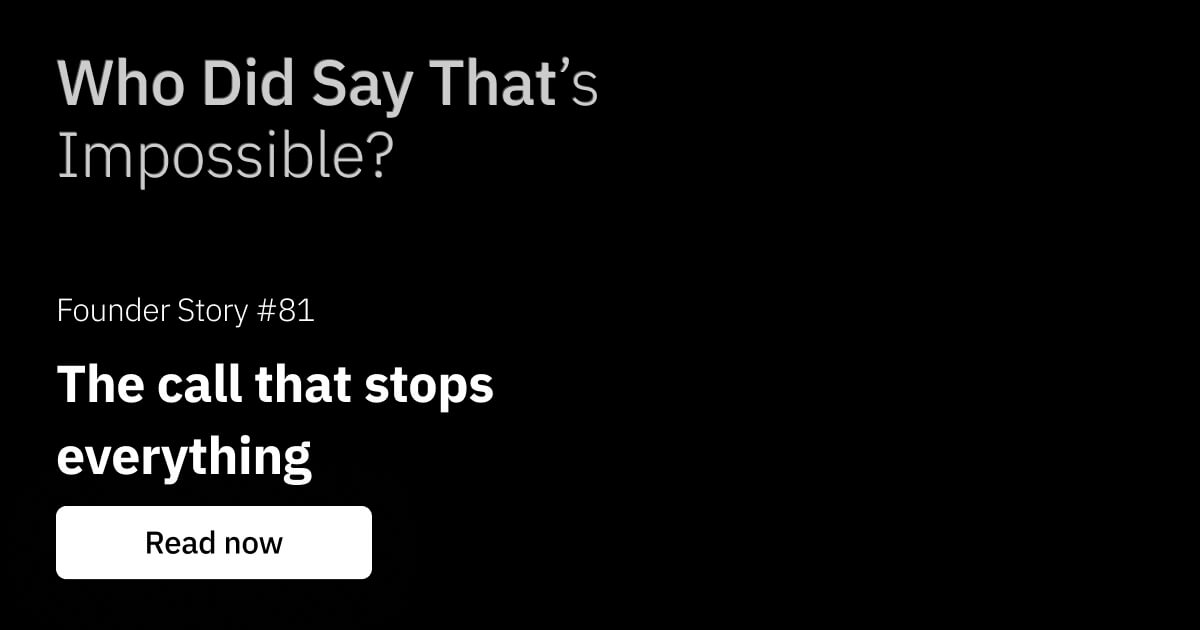Robots Do the Work?
Or a minute on the human factor.
At the heart of every business—are people.
Why does business even exist?
To deliver value to clients, solve their problems, and help them achieve their goals. Companies, projects, and innovations exist for one reason: people.
There’s no such thing as B2B.
It’s all Human to Human.
But it’s not that simple.
People are also the biggest business problem.
Starting with the “bus problem”—when a key employee is deeply involved in a critical process, it immediately becomes a high-risk zone.
Ending with cybersecurity concerns and access to sensitive, confidential information.
Employees aren’t just another “resource.”
They are the very foundation of your business. Every success depends on their talent, knowledge, and motivation.
Big challenges?
Groundbreaking projects?
It’s all about the team. No one builds a factory or launches a rocket alone.
A great team can take a company to new heights.
Hearing client praise is always satisfying.
But there’s another side to it.
One person can destroy everything.
Unhappy clients, missed deadlines, critical mistakes—all of it comes down to the human factor.
Entrepreneurs constantly find themselves between a rock and a hard place.
On one side, a team that makes mistakes (it happens), but genuinely tries their best.
On the other side, there’s a client who, understandably, is upset.
What to do about it?
- Feedback.
- Mistakes happen, but they’re lessons in disguise. It’s the entrepreneur’s job to investigate, provide clear, constructive feedback, and show support to the team.
- Take decisive action.
- Sometimes, the only solution is to part ways with an employee. And sometimes… with a client.
- Hire people who are passionate.
- Hiring is always a risk. No one is perfect. But as my first mentor told me: “Look for those with fire in their eyes.” They’ll dig deep, learn, and grow.
I spent 20 years building a business where people were the most valuable asset.
In IT outsourcing, your reliance on the team is especially pronounced.
A single disruption or employee leaving can cost a fortune.
But even if people aren’t as central to your business model, managing your team remains a critical challenge.
You can’t eliminate the problem entirely.
You can only reduce risks and improve control.
This is one reason why, after building a company with 100+ employees and offices across multiple countries, I shifted to solopreneurship.
Today, it’s possible to run a business with a small tiny team.
Where dozens of people were once needed for routine tasks, automation and AI now step in. This frees you up to focus on attracting talented, reliable, and driven individuals.
How to reduce the human factor risk?
- Automation and Digitalization.
- Tasks that once needed entire teams can now be managed by AI and no-code tools. This drastically lowers reliance on people for routine processes.
- Knowledge Base.
- Document processes, instructions, checklists, and project details. It speeds up onboarding for new employees, preserves critical information, and simplifies knowledge transfer.
No matter the scale of your business, a knowledge base is essential.
Entrepreneurs should implement one as early as possible.
- Processes and checklists. How should tasks be executed?
- Roles and responsibilities. Who is responsible for what?
- Project and client documentation. From onboarding to offboarding.
A knowledge base helps cut the cost and time required to train new team members.
It also makes it easier to work with external partners, contractors, and freelancers—while maintaining full control.
Don’t overlook the importance of these tools.
If I had tools like these 20 years ago when I was just starting out—and someone explained their value to me—it would have been the very first thing I set up.
Disclaimer.
Every business has its nuances, and every founder has their unique context and resources. Whether or not my advice applies depends on your situation, experience, and needs. But one thing is universal—use your brain.
Think about how to apply the advice in your context before acting.
Your way.
- Eugene
Join the “most offbeat” Businessletter on entrepreneurship.

Hi, I’m Eugene.
20 years later — 80 people, 3 continents, 7-figure revenue.
But for many years, I was the bottleneck in my own business.
Now I help founders escape the same trap. Through systems that actually work, not theory.
I write weekly: operational war stories, decision systems, and lessons learned the hard way.
For founders who want to build without burning out.
More Stories
Founder Stories

The invisible cost eating your margin
Or minute of realizing you're paying for time you can't bill

Why founders lie (even to themselves)
Or minute of freedom that comes after you exit


